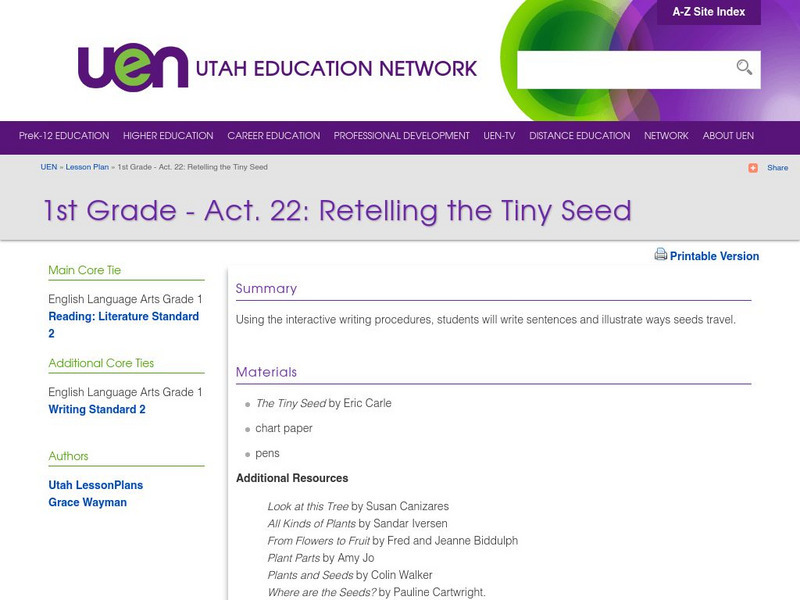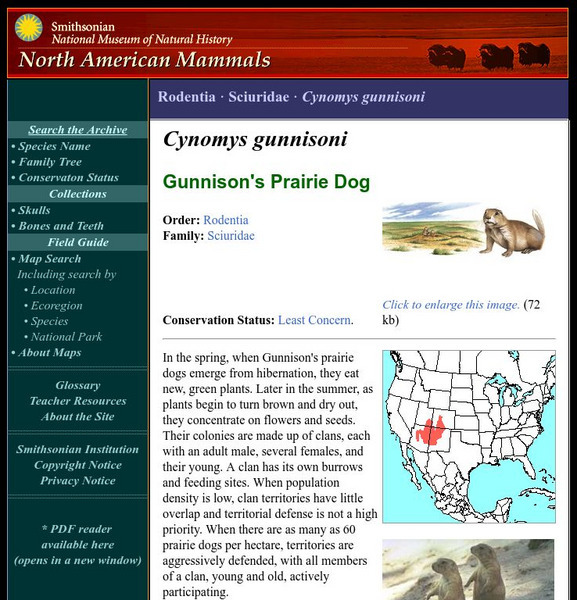University of Florida
Florida Museum of Natural History: Plant Life
This teacher's guide focuses on the fascinating world of plants. Through books and other print materials, and exploration of actual plants, children will identify plants as living things, examine the parts of plants, experiment with what...
Huntington Library
Huntington Library: Seeds, Soil, and Surprises
This site has excellent resources for teaching students about plants. It has a guide to scientific investigation and a glossary of plant terms. There are three lessons that each include a slideshow on the parts of a plant, the needs of...
Utah Education Network
Uen: 1st Grade Act: 22: Retelling the Tiny Seed
This lesson engages students in story retelling to Eric Carle's book, The Tiny Seed. Students will participate in interactive storytelling as they write sentences and illustrate pictures about seed travel.
Alabama Learning Exchange
Alex: Determining Percent of Seed Germination
In this project, students will conduct an experiment to determine the percentage of seed that will germinate in a given time frame. Students will produce charts and graphs to represent the results algebraically. Mathematics and...
Science & Plants for Schools
Science & Plants for Schools: Pollination, Fertilization, Fruits [Pdf]
Great PDF to teach students about plant reproduction and life cycle. There are many teacher printables.
Huntington Library
Huntington Library: Garden Lesson Plans: Why Is an Apple Like a Suitcase? [Pdf]
A mini-unit on fruits and seeds for younger students. Students will learn that fruit is like a suitcase for seeds, and that together they help plants to reproduce. Includes ELL suggestions, extension activities, and worksheets.
Genome British Columbia
Genome British Columbia: Terminator Technology for Gm Crops
In 1998, American scientists developed terminator seeds which grew into plants that were unable to reproduce. While this practice prevents the dangerous flow of genes to the wild, it has some disadvantages, for example, the added expense...
Smithsonian Institution
National Museum of Natural History: American Mammals: Gunnison's Prairie Dog
In the spring, when Gunnison's prairie dogs emerge from hibernation, they eat new, green plants. Later in the summer, as plants begin to turn brown and dry out, they concentrate on flowers and seeds. Learn more about the Cynomys...




![Science & Plants for Schools: Pollination, Fertilization, Fruits [Pdf] Lesson Plan Science & Plants for Schools: Pollination, Fertilization, Fruits [Pdf] Lesson Plan](https://d15y2dacu3jp90.cloudfront.net/images/attachment_defaults/resource/large/FPO-knovation.png)
